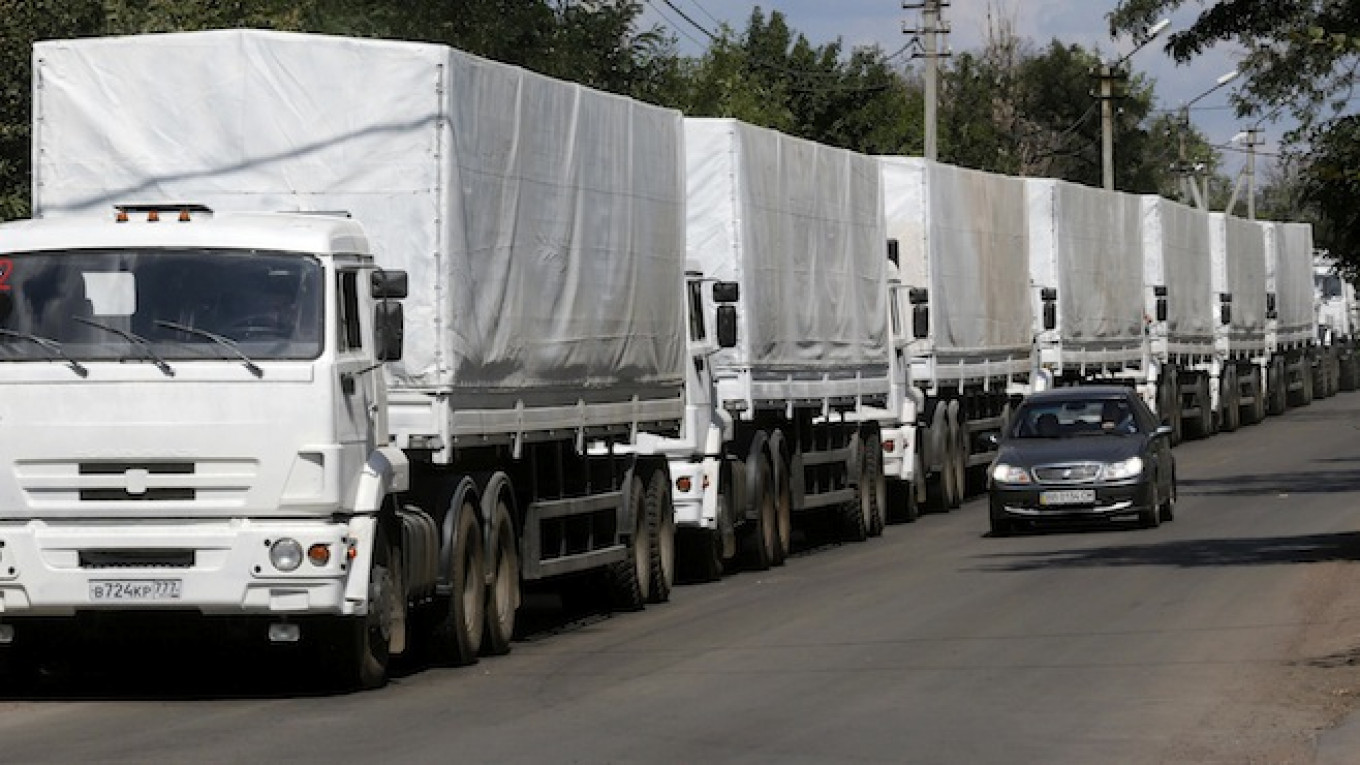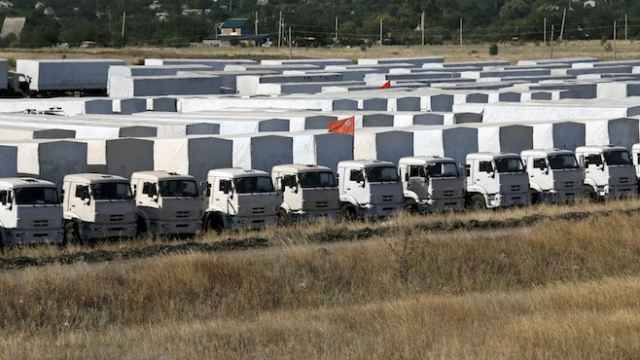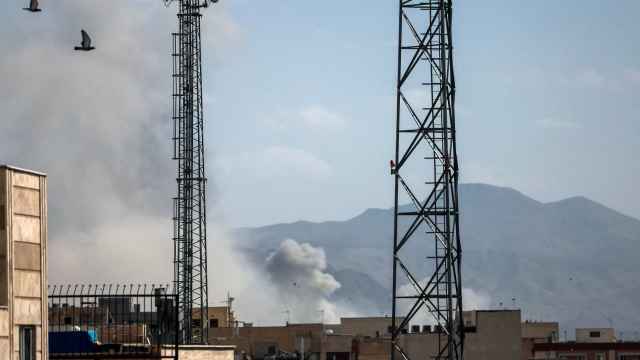As Russian armored troops reportedly rolled across the border into Ukraine, President Vladimir Putin said Moscow would be sending more convoys with humanitarian aid to Ukraine soon— seemingly with or without Kiev's blessing.
During a telephone conversation with German Chancellor Angela Merkel — who had called Putin to demand an explanation about the reported invasion, according to her office — Putin said Moscow was planning to supply more aid to Ukraine's eastern regions, a Kremlin statement published late Wednesday said.
The statement made no mention of Merkel's questions about the alleged invasion.
"The leaders of both countries stressed the importance of continuing international efforts to help deescalate the internal Ukrainian conflict," the Kremlin reported.
Putin also notified Merkel about Russia's plans to "ensure new supplies of humanitarian aid to the population of the Luhansk and Donetsk regions," it said.
Russian Foreign Minister Sergei Lavrov said Wednesday that Ukraine was in grave need of "humanitarian cargo" and the next shipment would follow "in the nearest days," according to a transcript published on his ministry's website.
"I am sure it won't be the last, because help is needed there on a huge scale," he said.
Putin spokesman Dmitry Peskov on Wednesday similarly said the deployment of aid would "happen soon."
"The Russian side is ready to do it even tomorrow," he told journalists, Reuters reported.
Humanitarian Crisis
New shipments of what Moscow calls humanitarian aid would follow a convoy of about 200 trucks that Russia sent across the border last week, disregarding negotiations with Kiev and the Red Cross.
The dispatch of a second aid convoy had been expected to go smoothly amid initial optimism stoked by an agreement between Putin and Ukrainian President Petro Poroshenko on Tuesday to help resolve the separatist conflict in eastern Ukraine.
But hopes shattered only a day later, as reports about Russian armored personnel carriers having entered Ukraine replaced optimism with fear.
Merkel told Putin that "the latest reports of the presence of Russian soldiers on Ukrainian territory must be explained," her spokesman Steffen Seibert said, Reuters reported.
Ukraine's government forces had been restoring control over separatist territories, but appeared to have retreated when Russian troops allegedly stepped up their involvement.
Lavrov said Wednesday that the "calamities" faced by inhabitants of eastern Ukraine, whose number he placed at 4 million, called for additional supplies of humanitarian aid.
He claimed that another 1 million Ukrainians had fled the country, most of them to Russia.
Earlier this month, the United Nations refugee agency, or UNHCR, placed the number of Ukrainian refugees at 168,000 so far this year, according to the agency's statement.
But UNHCR European director Vincent Cochetel added, however, that the number may be higher and described as credible the estimate of 730,000 people that he said was cited by Russia at that time.
Lavrov said that Moscow had "officially notified" Kiev about the plan to supply new aid convoys.
But Ukrainian defense spokesman Andriy Lysenko said Wednesday his government had received no official notification, Ukraine's 112.ua news agency reported.
A Message from The Moscow Times:
Dear readers,
We are facing unprecedented challenges. Russia's Prosecutor General's Office has designated The Moscow Times as an "undesirable" organization, criminalizing our work and putting our staff at risk of prosecution. This follows our earlier unjust labeling as a "foreign agent."
These actions are direct attempts to silence independent journalism in Russia. The authorities claim our work "discredits the decisions of the Russian leadership." We see things differently: we strive to provide accurate, unbiased reporting on Russia.
We, the journalists of The Moscow Times, refuse to be silenced. But to continue our work, we need your help.
Your support, no matter how small, makes a world of difference. If you can, please support us monthly starting from just $2. It's quick to set up, and every contribution makes a significant impact.
By supporting The Moscow Times, you're defending open, independent journalism in the face of repression. Thank you for standing with us.
Remind me later.






